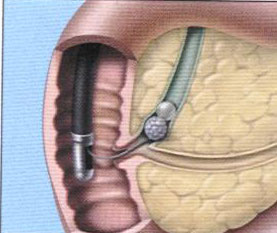 Researchers at the University of Rochester Medical Center, in New York, reviewed non-drug treatments.
Researchers at the University of Rochester Medical Center, in New York, reviewed non-drug treatments.
Let’s focus on herbals. Continue reading Limited value of herbals to lower blood pressure
 Researchers at the University of Rochester Medical Center, in New York, reviewed non-drug treatments.
Researchers at the University of Rochester Medical Center, in New York, reviewed non-drug treatments.
Let’s focus on herbals. Continue reading Limited value of herbals to lower blood pressure
 Glycyrrhizin is a major ingredient of licorice, which is sometimes used in the treatment of various diseases such as chronic hepatitis.
Glycyrrhizin is a major ingredient of licorice, which is sometimes used in the treatment of various diseases such as chronic hepatitis.
In animals, licorice or glycyrrhizin alters the activity of the CYP3A drug-metabolizing enzyme. Researchers at Central South University, in Hunan, People’s Republic of China looked for an effect in people. Continue reading Potential for licorice-drug interactions
 Researchers from the Mayo Clinic in Minnesota and Arizona collaborated to review the risks of herbal:drug interactions.
Researchers from the Mayo Clinic in Minnesota and Arizona collaborated to review the risks of herbal:drug interactions.
The abstract is a bit skimpy on details, but the American Pharmaceutical Association has a nice summary, which will be summarized further here. Continue reading Risk of taking herbals in people with heart disease
 OK, you’re scheduled for surgery, and you take herbals.
OK, you’re scheduled for surgery, and you take herbals.
Does your surgeon know what you take?
Be smart. If you use any of the herbals on this list, tell your surgeon.
 Endoscopic retrograde cholangiopancreatography (ERCP) is used to diagnose and treat conditions of the bile ducts, including gallstones, inflammatory strictures (scars), leaks (from trauma and surgery), and cancer.
Endoscopic retrograde cholangiopancreatography (ERCP) is used to diagnose and treat conditions of the bile ducts, including gallstones, inflammatory strictures (scars), leaks (from trauma and surgery), and cancer.
Researchers from Chiba University in Japan used shakuyaku-kanzo-to (TJ-68) to suppress spasms of the small intestine during ERCP procedures. Continue reading Herbal alternative to control intestinal spasm
 Hochu-ekki-to (TJ-41) is an herbal medicine that contains a mixture of 10 medicinal plants (listed below). It’s produced by Tsumura Co., Ltd. in Tokyo, which specializes in selling Kampo medicine — the adaptation of traditional Chinese medicine to Japanese culture.
Hochu-ekki-to (TJ-41) is an herbal medicine that contains a mixture of 10 medicinal plants (listed below). It’s produced by Tsumura Co., Ltd. in Tokyo, which specializes in selling Kampo medicine — the adaptation of traditional Chinese medicine to Japanese culture.
In this study, the use of topical medicines (steroids and/or tacrolimus [Protopic]) decreased when patients with atopic dermatitis took Hochu-ekki-to. Continue reading Kampo medicine to treat atopic dermatitis
 Another study reports that black cohosh is useless to prevent hot flashes and night sweats associated with menopause.
Another study reports that black cohosh is useless to prevent hot flashes and night sweats associated with menopause.
Here are the results from the Herbal Alternatives (HALT) for Menopause Study, funded by the National Institutes of Health.
Continue reading Black cohosh does not reduce menopausal symptoms